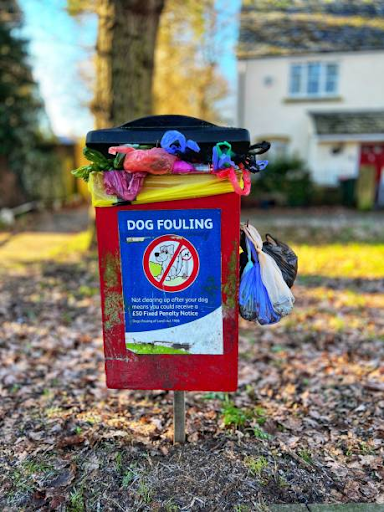Introduction:
Welcome to our blog discussing how pet waste stations can significantly enhance public health and safety. As responsible pet owners, it is crucial to address the issue of pet waste disposal in our communities. Did you know that pet waste can have detrimental effects on public health and the environment? According to recent studies, untreated pet waste contains harmful bacteria and parasites that can contaminate water sources and spread diseases. Furthermore, it poses risks, especially to children and vulnerable populations. However, the implementation of pet waste stations provides an effective solution. In this blog, we will explore the benefits of pet waste stations, their role in promoting responsible pet ownership, and how they contribute to creating cleaner and safer environments for all.
Understanding the Problem
Pet waste poses significant challenges to public health and safety in our communities. It is crucial to address the pinpoints associated with pet waste disposal. Improper waste management leads to the spread of diseases and parasites, contaminates water sources, and poses risks to vulnerable populations, especially children. Unfortunately, many pet owners struggle with responsible waste disposal due to a lack of infrastructure and awareness. This results in environmental consequences and health hazards. Understanding the problem is the first step toward finding effective solutions. By recognizing the impact of pet waste on public health and safety, we can highlight the importance of implementing pet waste stations as a practical solution to tackle these issues head-on.
The Role of Pet Waste Stations
Pet waste stations play a crucial role in addressing the pinpoints associated with pet waste disposal in communities. These stations are equipped with essential components such as waste bag dispensers, waste receptacles, and informative signage. By providing these amenities, pet waste stations encourage responsible pet ownership and contribute to public health and safety.
One key benefit of pet waste stations is their ability to mitigate the spread of diseases and parasites. Proper disposal of pet waste helps prevent the contamination of water sources and reduces the risk of illness for both humans and animals. Moreover, these stations also have positive environmental impacts, ensuring cleaner surroundings and protecting water sources.
Overall, pet waste stations are vital in promoting responsible pet waste management and creating healthier and safer communities.

Implementing Pet Waste Stations
Implementing pet waste stations is a crucial step in addressing the pinpoints related to pet waste disposal in communities. By strategically placing pet waste stations inaccessible locations, we can encourage responsible pet ownership and mitigate the spread of diseases and parasites.
To ensure a successful implementation, collaboration between communities and local authorities is essential. Together, they can identify suitable locations for pet waste stations and secure the necessary funding and resources. Proper placement and regular monitoring are key factors in maintaining the effectiveness of these stations. By involving the community through awareness campaigns and volunteer programs, we can create a cleaner and healthier environment for everyone.
By addressing these pinpoints, we can make a significant impact on public health and safety, protecting our water sources and fostering a sense of responsibility among pet owners.
Overcoming Challenges and Addressing Concerns
Implementing pet waste stations may encounter certain challenges and concerns. However, addressing these pinpoints is crucial for the successful adoption and maintenance of such programs. Let's explore some common objections and provide viable solutions to overcome them.
Cost and budgetary concerns:
Pet waste stations are often perceived as expensive to install and maintain. To address this concern, communities can explore cost-sharing initiatives with local businesses or seek sponsorship from pet-related organizations. Additionally, optimizing operational costs through efficient waste removal and recycling programs can help mitigate financial burdens.

Maintenance and upkeep challenges:
Proper maintenance of pet waste stations is essential for their functionality and longevity. Establishing volunteer programs or partnering with local community organizations can help ensure regular inspection, waste removal, and restocking of waste bags. Furthermore, educating pet owners about their responsibilities and the importance of clean environments can promote a collective sense of ownership.
By addressing these challenges, communities can build successful pet waste station programs that contribute to improved public health and safety, creating cleaner and more enjoyable neighborhoods for everyone.
Conclusion
In conclusion, implementing pet waste stations is a crucial step in addressing the pinpoints related to pet waste disposal and improving public health and safety in communities. These stations play a significant role in encouraging responsible pet ownership and mitigating the spread of diseases and parasites. By providing waste bag dispensers, waste receptacles, and informative signage, pet waste stations make it easier for pet owners to clean up after their furry companions. This not only reduces the risk of contamination in water sources but also creates cleaner environments for everyone. To create cleaner, healthier, and safer communities, it is important for local authorities and communities to collaborate, secure funding, and raise awareness about the benefits of pet waste stations. Together, we can make a positive impact on public health and safety through responsible pet waste disposal practices.
Frequently Asked Questions (FAQ)
A: A pet waste station is a designated area for pet owners to dispose of their pet's waste. These stations typically consist of a waste bag dispenser, a trash can, and a sign reminding pet owners to clean up after their pets.
A: Yes, pet waste stations are environmentally friendly. By providing a convenient and hygienic way for pet owners to dispose of their pet's waste, these stations help to prevent the spread of harmful bacteria and parasites that can pollute waterways and harm wildlife.
A: The cost of installing a pet waste station can vary depending on the type and size of the station. However, most pet waste stations are relatively affordable and can be installed for under $500.
A: Yes, pet waste stations require regular maintenance to ensure they remain clean and functional. This includes emptying the trash can, restocking the waste bag dispenser, and disinfecting the station.
A: Pet owners can support pet waste stations by using them to dispose of their pet's waste and encouraging other pet owners to do the same. Additionally, pet owners can volunteer to help maintain and clean the stations in their community.



